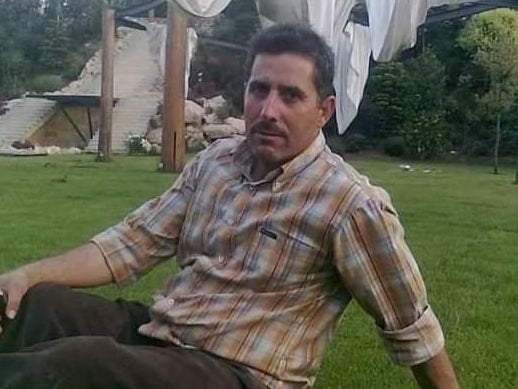‘Chilling contempt for lives’: Families left to suffer in uncertainty over Syria deaths
Report alleges Syrian officials quietly registered deaths of people abducted and detained, without letting their relatives know, writes Borzou Daragahi

Ahmad Hassan al-Dghiem was a 39-year-old day labourer from the Syrian town of Jarjanaz, a rural agricultural hamlet of around 10,000 or so people in the country’s hilly northwest. He was on his way back home from a stint of work in Lebanon on 28 October 2012 when he was arrested at the border crossing by Syrian regime forces, then in the midst of suppressing a nationwide uprising against Bashar al-Assad. Then he disappeared. His family received no solid information about him for a decade – until this year.
Now, the Syrian Network for Human Rights (SNHR), the UK-based monitoring group, has published a report detailing recently uncovered documents that show the deaths of hundreds of Syrians believed abducted having been registered, without the families being informed.
The report is the latest effort by human rights researchers to find out the fate of some 112,000 people who have disappeared during the Syrian conflict. Over the last five years, SNRH has procured 1,600 death certificates, many passed on by families who learned of the deaths of their parents, siblings or children while conducting other business at civil registry offices.
“The families of these dead people were never notified that their loved ones had been registered as dead at the civil registry,” Fadel Abdul Ghany, director of SNHR, said in a statement. “We seriously fear that the tens of thousands of other people still classified as forcibly disappeared in the Syrian regime’s detention centres have also met their demise.”
Among those previously regarded as missing but now confirmed to have died in detention centres is a six-year-old girl and a 13-year-old boy, according to the SNHR report. Both died years ago, although their families only found out about their deaths recently. No causes of death are listed in the certificates.
Yahya Yahva Bad al-Din Hijazi, born in 1959, and his then 23-year-old son Badr, were abducted by Assad regime forces from their home in Hama on 11 February 2012. Later that year security forces also detained another son, Mohammad, then aged 21, while he was performing his obligatory military service.
For years the regime denied they were in custody. Then, just last month, SNHR managed to obtain death certificates for all three men, who were recorded dead over a six-month period between late 2013 and 2014. The advocacy group took up the harrowing task of doing what the regime had not: informing the survivors.
SNHR says that multiple state apparatuses must be implicated in efforts to suppress such information yet record the deaths.
“The system adopted by the Syrian regime to register forcibly disappeared persons dead without notifying their families is a damning demonstration of the regimes ... chilling contempt for the lives of its citizens who are subjected to a level of barbarism that blatantly violates every norm and law,” the report says.
Syrian officials have in the past denied accusations of systemic torture and mass executions in jail.
After the arrest of al-Dghiem, his family retained several lawyers to locate him, and pressed officials who denied he was in custody. But there was never any answer.
Months went by. A former detainee told them he was spotted at an airport in Damascus in 2013, raising some hope he was alive and might be free one day.
But more years went by, and there was no more news.
Only this year on 1 February, the family learned that he had been recorded dead on 14 November 2014, just a little more than two years after his arrest. “SNHR can confirm he was in good health at the time of his arrest. which makes it highly likely that he died due to torture and medical negligence in a regime detention centre,” says the report.
Syrian regime forces have not returned his body so that his family could bury him and say goodbye.
“Since the moment of my father’s arrest, we have received no updates, and his fate is still unknown,” his son Ahmad told SNHR.
“It seems that these strategies are deliberately designed and calculated,” the SNHR report says, “so as to cause the greatest psychological trauma to the families of the missing to continue the regime’s policy of collective punishment.”
Subscribe to Independent Premium to bookmark this article
Want to bookmark your favourite articles and stories to read or reference later? Start your Independent Premium subscription today.

Join our commenting forum
Join thought-provoking conversations, follow other Independent readers and see their replies